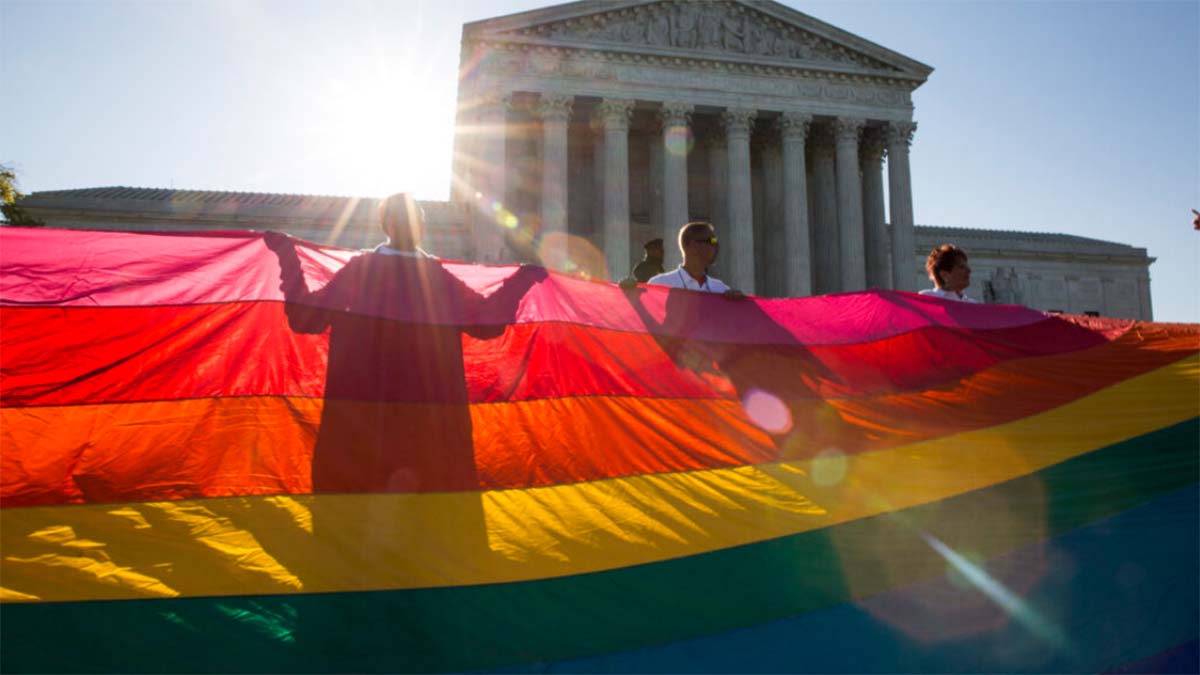During a national TV interview in 2022, Gov. Glenn Youngkin said, inaccurately, that Virginia law already protects same-sex marriage.
In a few weeks, he’ll have to weigh in on whether it should.
This story was reported and written by our media partner The Virginia Mercury
The Democratic-controlled General Assembly has passed legislation meant to enshrine the legality of same-sex marriage in Virginia even if the U.S. Supreme Court reverses its landmark 2015 decision that legalized marriage equality nationwide.
“Virginians across the political spectrum have taken heart to see these bills receive bipartisan support in the General Assembly,” Sen. Adam Ebbin, D-Alexandria, said in a news release on the final passage of the bill he’s sponsoring. “I hope Governor Youngkin will sign this critical legislation to create state-level protections for all Virginians regardless of who they love.”
Youngkin’s office did not take a position on the bill Wednesday, saying only that the governor “will review any legislation that comes to his desk.”
The governor’s office has pointed to the Supreme Court’s 2015 Obergefell v. Hodges decision that legalized same-sex marriage in all states to bolster Youngkin’s assertion the practice is already protected in Virginia. The proposal that passed the legislature this year is meant to clear up any uncertainty about what might happen in Virginia if the Supreme Court removes that protection.
The bill — which picked up some Republican support on its way through the legislature but is still opposed by staunch social conservatives — says marriage licenses must be issued to any two people seeking a “lawful marriage” regardless of gender, race or sex and that Virginia will recognize such marriages as valid. The proposal includes a carveout giving clergy members and religious organizations the ability to choose not to participate in same-sex ceremonies.
For now, the measure is mostly symbolic. Because the Virginia Constitution supersedes state law, Democrats are also pushing to repeal the constitutional same-sex marriage ban Virginia voters approved in 2006. That ban has been moot for nearly a decade, but it could theoretically be reactivated if the conservative-leaning Supreme Court were to revisit the question of whether same-sex marriage is a right protected by the U.S. Constitution.
In 2020, Virginia Democrats repealed a legally defunct statutory prohibition on same-sex marriage, but they didn’t replace it with an affirmative right to marry. To repeal the constitutional ban, the General Assembly has to pass a constitutional amendment in 2025 and 2026 before the question can be put to voters in the fall of 2026.
Del. Rozia A. Henson Jr., D-Prince William, said the legislation would “assuage concerns from the LGBTQ+ community” following the U.S. Supreme Court’s decision to overturn Roe v. Wade and comments from Justice Clarence Thomas suggesting the court should reconsider its stance on same-sex marriage.
Youngkin will have to act on all bills before the General Assembly’s April 17 reconvened session, when lawmakers return to take up the governor’s vetoes and amendments.

